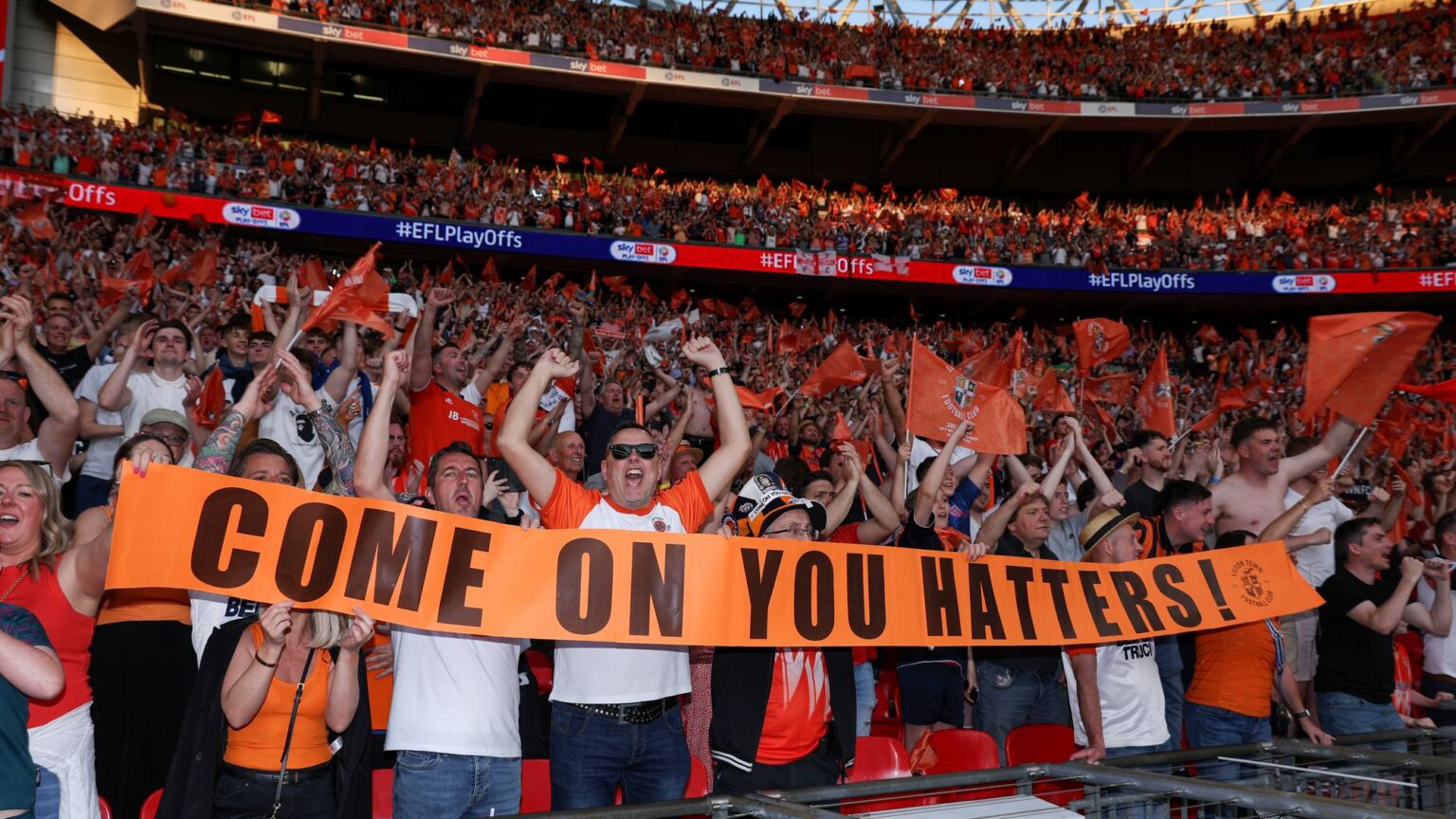The rebirth of Luton
Premier League promotion has given the town its pride back.

Want to read spiked ad-free? Become a spiked supporter.
It’s a footballing fairytale. My hometown club, Luton Town FC, were playing non-league football a decade ago. Now they have just been promoted to the Premier League.
Luton may be the oldest professional football club in southern England, but their recent history has been tumultuous to say the least. In the late 2000s, amid huge financial difficulties, Luton suffered three successive relegations, culminating in their demotion to the non-league Conference Premier in April 2009.
In some ways, Luton Town’s struggles during the 21st century have reflected those of the town itself. It is consistently labelled as the worst place to live in England. The joke runs that people only visit Luton, known for its airport, in order to fly out of it.
Prominent figures associated with Luton don’t do the town any favours. One is Luton-born Charles Bronson, the infamous prisoner currently serving a life sentence for violent attacks on fellow inmates and prison guards. Another is British-American social-media ‘personality’ Andrew Tate, who grew up in Luton. He was arrested in January this year by the Romanian police over allegations of human trafficking. Then there’s born-and-bred Lutonian Stephen Yaxley-Lennon (aka Tommy Robinson), a convicted criminal and former leader of the far-right English Defence League (EDL).
The EDL formed in Luton in 2009, in response to Islamist demonstrations which were then being held in the heart of the town. The EDL grew rapidly during the early 2010s and held demonstrations across England, where its members frequently clashed with anti-fascists. Thankfully, the EDL is now very much a waning force, with Tommy Robinson now an irrelevance.
Clearly, Luton is far from perfect. But this predominantly working-class, racially diverse town has also managed to overcome its internal troubles and maintain a level of social solidarity that would surprise many. The vast majority of Lutonians, irrespective of background, have pushed back against the divisive rhetoric of far-right and Islamist extremists alike. Most simply want to live in a stable, thriving community. And now they can delight in seeing their local football club, on the brink of extinction just a few years ago, mix it with the likes of Arsenal, Manchester United and Liverpool in the Premier League.
Luton’s promotion to the top tier is not just a footballing success. It also promises to provide an economic boost for the town at large. According to football finance expert Kieran Maguire, just one season of being in the Premier League should generate a level of revenue equivalent to the club’s total revenue over the past 18 seasons. The millions that will come from playing in the Premier League should go some way towards funding Luton’s relocation, from its current home at Kenilworth Road to a new stadium at the Power Court site, which will raise its stadium capacity from 10,000 to 23,000. This should also help to guarantee the club’s financial future, ensuring that a much-loved civic asset continues to bring together Lutonians for decades to come.
Perhaps Luton will only last a season in the Premier League. Perhaps our best players will be picked off by richer clubs. Either way, there is now a sense that Luton is a town reborn – on and off the football pitch.
Rakib Ehsan is the author of the forthcoming book, Beyond Grievance, which is available to pre-order on Amazon.
Who funds spiked? You do
We are funded by you. And in this era of cancel culture and advertiser boycotts, we rely on your donations more than ever. Seventy per cent of our revenue comes from our readers’ donations – the vast majority giving just £5 per month. If you make a regular donation – of £5 a month or £50 a year – you can become a and enjoy:
–Ad-free reading
–Exclusive events
–Access to our comments section
It’s the best way to keep spiked going – and growing. Thank you!









Comments
Want to join the conversation?
Only spiked supporters and patrons, who donate regularly to us, can comment on our articles.